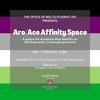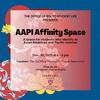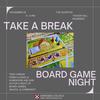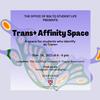Good morning. It's an honor to be here today, participating in this tradition in which so many inspiring people have participated, so thank you for the invitation.
The text I offer today is the Oxford English Dictionary, and specifically the entry for integrity, which provides two definitions. The first reads: “The quality of being honest and of having strong moral principles."
We expect this quality of people who belong to our campus community. We require honesty in our academics and our research, in our teaching, in our learning, in our paper-writing, in our advocacy and in our support for each other, in our administration of University resources, indeed in every interaction we take, every action we take.
Furthermore, and you can fact-check this with the historians at the Graduate School of Education, the development of strong moral principles is built into the foundation of higher education in this country. This thread continues today, for instance, with the implementation of an honor code at the College.
If, as Dean Khurana tells us, the mission of Harvard is and has been for 400 years to develop citizens and citizen-leaders for the nation—for the society, excuse me—then of course we must develop students with integrity. Our future depends on it. If our purpose as a research university is to uncover truth, then we must conduct our work with integrity. The very truth we purport to create depends on it.
And yet, as central as the first definition may be for us, I believe it's the second definition for integrity that merits our attention today. "The state of being whole and undivided,” as of a ship or a house, perhaps even as of a human.
I remember the first time I felt broken. I remember growing up queer, feeling isolated, alone, like some part of me didn’t belong. I remember navigating the tension between who I knew myself to be, who I wanted to be, who my community thought I was, and who my community thought I should be. I remember the slurs used to decry people like me—from friends, from family. I remember the literal violence leveraged against people like me, the reminders that my life would unfold in the way others deemed permissible, and that for my life to unfold in any way different from the norm was unacceptable. I remember crying myself to sleep every night for years, not because of who I was, but because of how shattered my community had left me.
This summer, I found myself feeling broken again. Without warning, I lost hearing in my right ear. The first doctor I saw told me that I would fully recover. The second wasn’t so sure, and the third confirmed that I never would, so I have a hearing impairment now.
When I thought I would recover my hearing, I joked with friends that I was broken, but only temporarily. When I learned that I wouldn’t recover, I grieved… but only briefly. This time, my community rallied to support me. Friends, coworkers, teachers, new classmates adjusted and continue to adjust to my newfound and newly-expressed needs, ensuring that our relationships don’t suffer and that I can participate fully in the life of the shared community we have created together. Where I could have found alienation once again, instead I found love.
It is not lost on me that today is National Coming Out Day—a day to honor the struggles we who identify as queer and trans endure, and a celebration of our identities. But I do not believe that coming out, itself, should be the emphasis of the day. There are myriad reasons why a person who feels whole might want to remain in the closet; there are myriad reasons why a person who is not in the closet, who is out, might feel broken. I didn’t experience wholeness through the act of coming out; I developed it in relation to the supportive community I was fortunate enough to develop.
Today, I ask that we focus not on any individual’s act of coming out, but on our collective responsibility for creating a community of love and support, a community that fosters wholeness in all of us. If we expect the members of our diverse campus to fulfill the obligation of being honest, of having strong moral principles, of living with integrity, then we all are responsible for creating a campus where each of us is able to live our lives wholly and undivided, however that may look for us. Anything less undermines the integrity of our community. Thank you.





